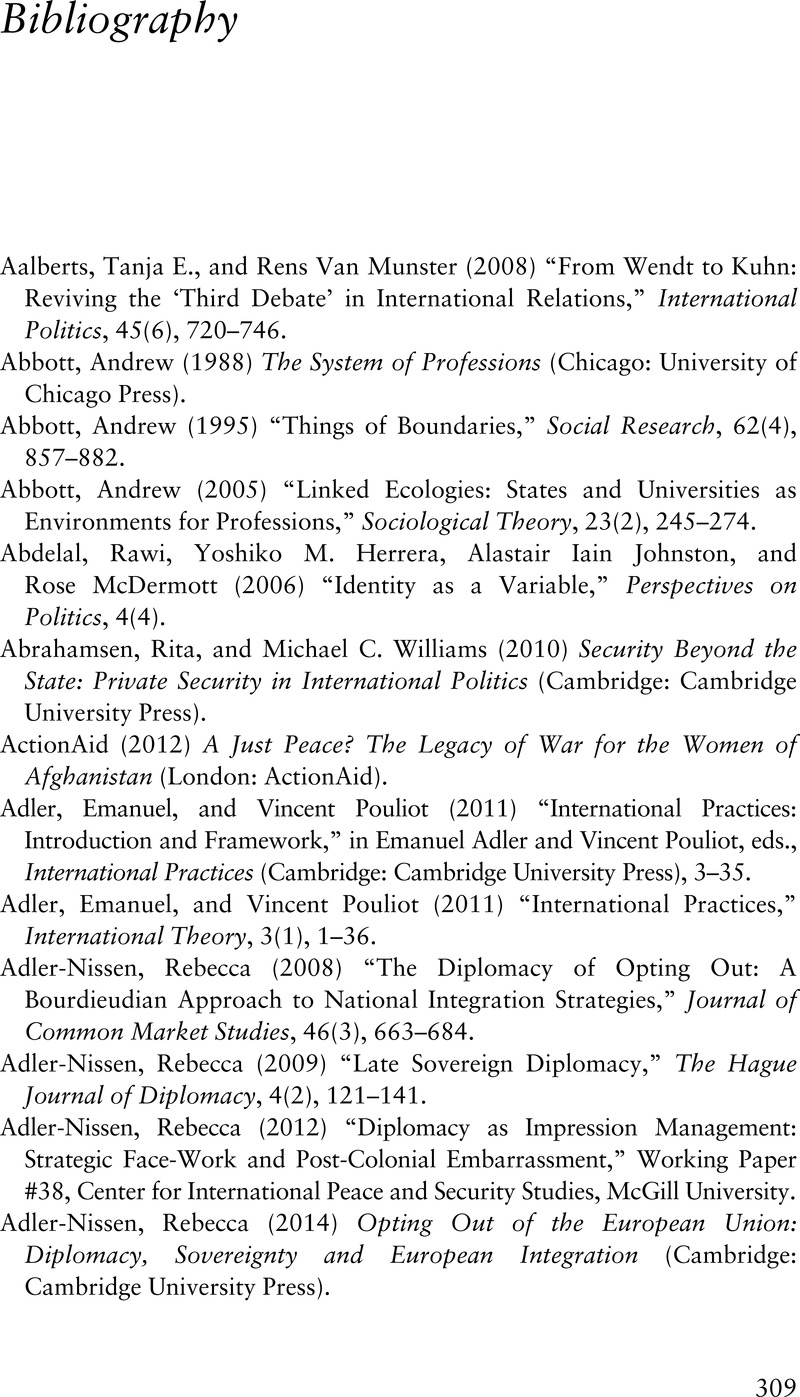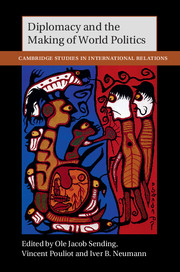Book contents
- Frontmatter
- Contents
- Contributors
- Acknowledgments
- Introduction
- Part I Making of international institutions
- Part II Making international cooperation
- Part III Diplomacy as a contested terrain
- Conclusion: Relationalism or why diplomats find international relations theory strange
- Bibliography
- Index
- Cambridge Studies in International Relations
- References
Bibliography
Published online by Cambridge University Press: 05 September 2015
- Frontmatter
- Contents
- Contributors
- Acknowledgments
- Introduction
- Part I Making of international institutions
- Part II Making international cooperation
- Part III Diplomacy as a contested terrain
- Conclusion: Relationalism or why diplomats find international relations theory strange
- Bibliography
- Index
- Cambridge Studies in International Relations
- References
Summary

- Type
- Chapter
- Information
- Diplomacy and the Making of World Politics , pp. 309 - 343Publisher: Cambridge University PressPrint publication year: 2015



